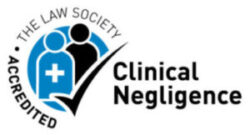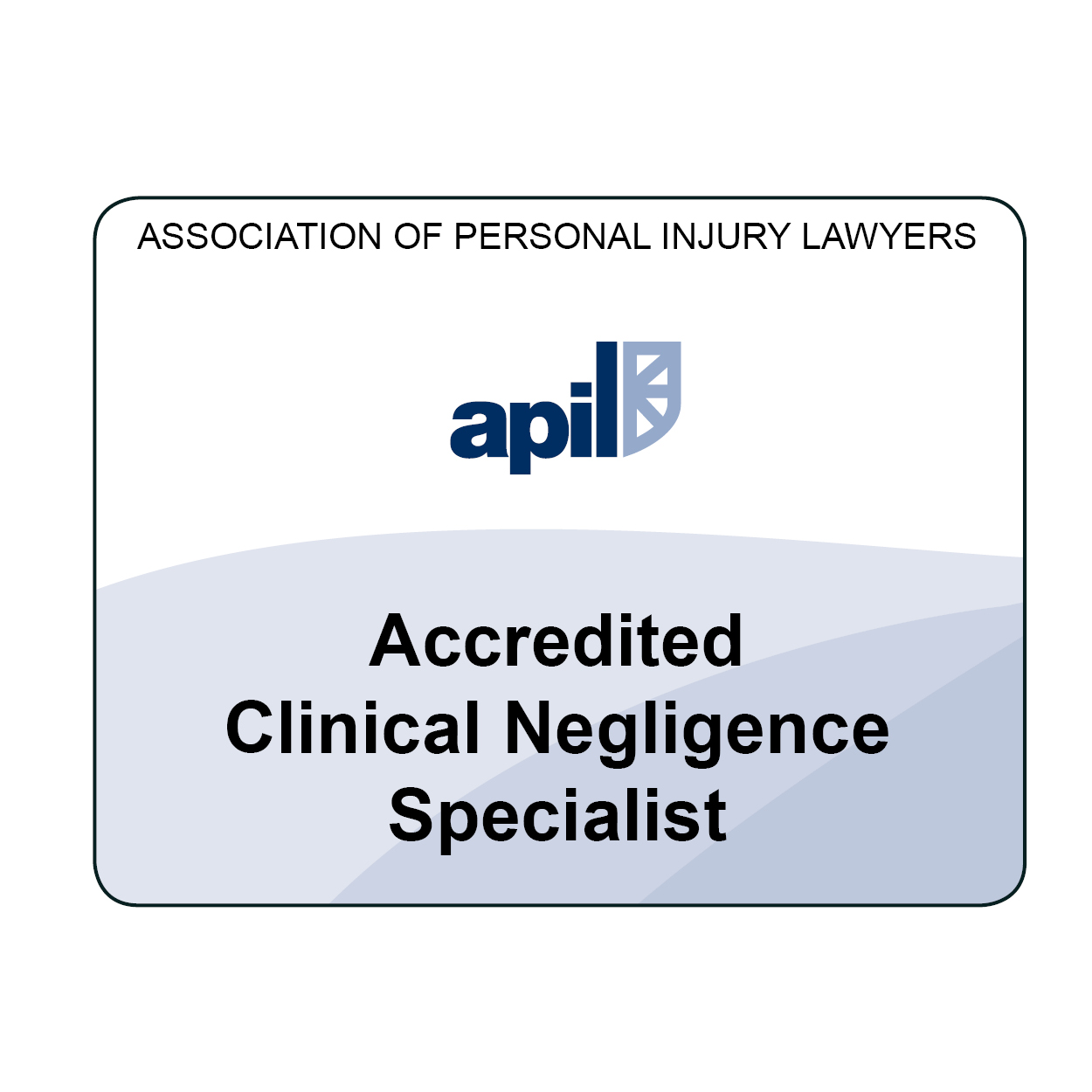Blackwater Law medical negligence solicitors acted for Mr L in a medical negligence claim in the High Court after he was misdiagnosed. The misdiagnosis meant he went on to suffer a serious stroke-causing life-limiting disability.
In order to make a successful medical negligence claim, you will need specialist legal advice from an experienced medical negligence solicitor. Contact us today for a free initial consultation and quickly find out whether you have grounds to make a no win no fee medical negligence claim.
What is medical negligence?
Medical negligence, also called clinical negligence, is a legal term. It is used when medical professionals fail to provide care that meets a reasonable standard or quality. This failure leads to harm or injury to the patient.
Medical negligence can include failure to diagnose a medical condition, misdiagnosis, delayed treatment or incorrect treatment, surgical errors, or failure to obtain informed consent from a patient.
The goal of a medical negligence claim is to help restore a person back to the position they were in, had the injury or negligent care not happened.
Contents:
- How do you make a claim for medical negligence?
- How much compensation will you receive for medical negligence?
- Are there time limits to making a claim?
- How do you prove medical negligence?
- How long do medical negligence claims take?
- Will making a medical negligence claim affect my care?
- What can medical negligence compensation pay for?
- What types of medical negligence can I claim for?
- Can I make a medical negligence claim on behalf of somebody else?
- Are medical negligence claims just against the NHS?
How do you make a claim for medical negligence?
The first steps in making your claim can sometimes be the hardest, understanding the basic structure of a medical negligence claim can empower you to make an informed decision and help your claim run smoothly.
Your first step in making a claim would be to contact an expert medical negligence solicitor about making a claim. At Blackwater Law, you will first speak to an experienced member of our enquiries team. They will establish the facts of your claim and begin to map out the next steps for you.
Your claim will then be assessed by our team of expert solicitors, based on the information provided and any documentation you have given us.
After our senior solicitors have considered your details, we will let you know as soon as possible whether we believe your potential claim warrants further investigation. If we take on your case, we will explain your funding options, including a ‘No-Win, No-Fee’ agreement.
Your solicitor will need access to your complete medical history to assess your claim. We may need to write to the healthcare provider(s) involved in your care and treatment requesting further copies of your medical records. This is the first stage of what is known as the pre-action protocol.
Medical negligence cases require expert medical opinion. Your solicitor may then consult with independent medical experts to evaluate whether breaches of duty of care have caused your injury.
If the expert evidence is supportive of your claim, we will send your opponent (Defendant) a letter of claim outlining the alleged negligence and its consequences.
If negotiations with the Defendant(s) reach an impasse, court proceedings may become necessary. Whilst this might seem intimidating, your legal team will guide you through every step and represent your interests.
Most medical negligence claims are settled out of court through negotiation and compromise. Both parties seek to avoid the time and expense of a trial while reaching a mutually acceptable resolution.

How much compensation will you receive for medical negligence?
Each case of medical negligence will vary greatly, therefore the amount of compensation awarded will also vary greatly. Calculating medical negligence compensation awards can be a complicated process, with a variety of factors considered by the Court.
The nature and severity of the injuries suffered by the claimant is perhaps the most important determining factor when comes to assessing payouts. Similarly, if you have suffered significant pain – whether it be physical or mental – and it is shown to have been caused directly by the defending party’s actions and/or failure to act appropriately, this will increase the compensation sum you are likely to be awarded.
The compensation awarded will be split into General and Special Damages. General damages refer to those awarded for the direct impacts on your life in terms of suffering and difficulties in going about your normal routine. Special damages, on the other hand, are those intended to help you cover the costs of dealing with your afflictions, such as buying medical care or hiring a caregiver to help you adapt to a new lifestyle. Special damages are also those which account for lost earnings.
You can learn more about General and Special Damages in our in-depth article
Helpful Articles
Are there time limits to making a claim?
In most circumstances, you will have three years from the date of the incident to bring forward a medical negligence claim. If you were not aware that any negligent act had occurred until a later date, the three-year time limit begins once you have become aware of negligence.
If the negligence has occurred to someone under the age of 18, then you will have until the child’s 18th birthday to start a claim. Once the child turns 18 the three-year limitation period begins.
There is another exception where if the person concerned does not have what is called ‘mental capacity’ then there is no limitation period to bring a claim unless they regain capacity at a later stage.
Limitation periods can be difficult to establish in cases, so if you’re unsure speak to a member of our team who can advise on limitation.
How do you prove medical negligence?
To prove medical negligence, it must be shown that the healthcare professional breached their duty of care to the patient. This means they failed to provide the level of care that a reasonable healthcare professional would provide in similar circumstances.
It must then be shown that this breach of duty caused harm or injury to the patient. This is what is known as causation. Both elements must be satisfied to have a successful medical negligence claim.
How long do medical negligence claims take?
In the UK, medical negligence claims take on average two to three years to conclude. Each claim must be assessed in stages where liability for, severity and duration of symptoms must be weighed to determine the damages awarded.
Your claim may be concluded more quickly or more slowly, depending on how swiftly your medical negligence solicitor is able to negotiate these stages for the best possible result.
Will making a medical negligence claim affect my care?
Sometimes we assist clients who are still under the care of a healthcare provider of whom they are making a claim. We are sometimes asked if they should be worried about their claim affecting the care they receive.
In short, you should not worry about the standard of your care falling. Those responsible for you remain dutybound to provide a high standard of medical care regardless of any ongoing claim.
In some instances, we have found the standard of care received has improved, as any subsequent medical treatment after a claim has begun will be subject to a high level of scrutiny as part of the claim.
Helpful Articles
What can medical negligence compensation pay for?
While no amount of money can erase the harm you’ve been subjected to, compensation can help secure the treatment and ongoing assistance you need to move forward.
A significant portion of medical negligence compensation often goes towards covering past, present, and future medical needs arising from the negligence including any ongoing treatment, and necessary private medical care as well as ongoing physio or occupational therapy needed because of the negligence.
Medical negligence can significantly impact your ability to work and can therefore cover the loss of past earnings due to time off work while recovering from the negligent treatment, as well as Loss of future earnings if the negligence reduces your earning capacity, compensation can account for the projected loss of income throughout your working life.
What types of medical negligence can I claim for?
Negligence can occur at any point during your interaction with a medical institution, often you may not have realised that negligence has occurred at a later date.
Negligence can occur during the initial stages due to a misdiagnosis of a condition for something less serious, or in fact a complete failure to diagnose a serious condition until it is too late to start effective treatment.
Negligence can also occur during hospital procedures such as surgery or during childbirth. Failing to spot serious conditions such as Sepsis or internal bleeding can also amount to negligence.
Negligence can occur in hospitals, at your GP surgery, at the dentist or in care homes.
Senior Chartered Legal Executive Anna Watson was able to secure more than £400,000 for her client after her husband died from negligence in hospital.

Can I make a medical negligence claim on behalf of somebody else?
If the individual who has experienced the negligent act is unable to manage their claim independently, a loved one is able to step in and act on their behalf as a ‘litigation friend.’
A litigation friend is an individual that is appointed by the court on behalf of an individual who lacks the capacity to manage their own claim. This could be that the individual is a child, or they lack the mental capacity to bring the claim forward.
There are guidelines that lay out the role and responsibilities of a litigation friend, as well as who is able to act as one. If you would like to bring forward a claim on behalf of someone else, speak to a member of our team who can explain how the claim will run and your role as a litigation friend.
Are medical negligence claims just against the NHS?
Medical negligence can occur both in NHS care, as well as private healthcare. If your care was provided privately, there will be a slight difference in your claim.
If your claim is regarding negligent care received under the NHS, the claim will be dealt with by NHS Resolution. This is an arm’s length body of the NHS that operates claims on behalf of all NHS trusts and since April 2019, GPs (although GP practice owners or partners may be personally liable for negligent acts and omissions of their staff or the actions or omissions of a fellow partner, for which they will likely have their own insurance cover).
It is NHS Resolution that pays any compensation awarded, which comes from contributions from all NHS Trusts.
If your claim is regarding negligent private medical care, your claim will be against the private company that operates the medical facility, and in some instances may even be against an individual medical professional. In this instance, it would be the defendant’s professional insurance who will pay the compensation.








